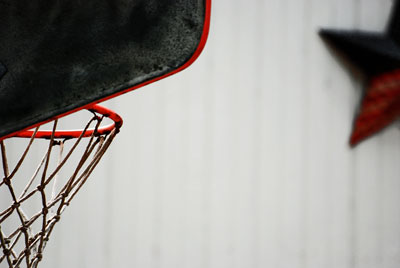All Nonfiction
- Bullying
- Books
- Academic
- Author Interviews
- Celebrity interviews
- College Articles
- College Essays
- Educator of the Year
- Heroes
- Interviews
- Memoir
- Personal Experience
- Sports
- Travel & Culture
All Opinions
- Bullying
- Current Events / Politics
- Discrimination
- Drugs / Alcohol / Smoking
- Entertainment / Celebrities
- Environment
- Love / Relationships
- Movies / Music / TV
- Pop Culture / Trends
- School / College
- Social Issues / Civics
- Spirituality / Religion
- Sports / Hobbies
All Hot Topics
- Bullying
- Community Service
- Environment
- Health
- Letters to the Editor
- Pride & Prejudice
- What Matters
- Back
Summer Guide
- Program Links
- Program Reviews
- Back
College Guide
- College Links
- College Reviews
- College Essays
- College Articles
- Back
Calipari Requests Major Changes
We’ve all heard it: John Calipari is to freshmen talent what Woodstock was to hygiene-abandoned hippies. High school All-Americans gravitate to this Kentucky basketball coach’s program. As the country all knows, though, once that freshman season ends, it’s like the gun goes off at the Kentucky Derby, and just like that, his core group of players are off to the NBA, full-steam ahead.
Calipari has a way of luring in and sweet-talking his new recruits into signed vows every year, and sure enough, he’ll get cream-of-the-crop, fresh-out-of-the-womb talent. He just wishes he could keep it longer.
How much can he blame a kid pressured to endorse the lucrative contracts with the opportunity like a hooked worm at the kid’s fingertips? Any little setback, and that bait can yank away; there’s never a guarantee it comes into sight again. As a result, these products of the pond take the first open chance to rise above the mucky mess, take the loot, and spread it amongst their home roots in desperate need of it.
The theme has always seemed to be that college needs these caliber scale-busting players, but these players don’t all need college. We see the NCAA swim in millions upon however many millions (nearly $71 million in surplus revenue), yet the 20-year old kids responsible for hauling it in have to live on dollar menu budgets like any other student.
From ticket sales, to ratings and broadcast viewership, even to schools’ jerseys with those premier players’ numbers on them—though every buyer knows damn well what non-profited player the jersey represents—the players are considered students working overtime for the sake of free school, perhaps preparation for a shot at the pros, and yeah, some campus to nationwide fame. That in itself seems a legitimate enough argument detesting college athletes be paid, right?
But to what degree are these athletes’ perks truly enough on a financial aspect for kids hearing from home that their families may still be struggling or living uncomfortable? Now that is the lure to the pros for a lot of these kids. That is the one same ongoing issue Calipari has dealt with in his otherwise far-from-same seasons. Every year, it’s a brand new mix of six or so players. Different personnel every year. It changes like LeBron James’ editions of shoes.
Obviously, no college basketball coach nor any representative of the NCAA can alter the NBA’s intentions to keep the ‘one year out of high school’ rule to be eligible for the draft. Even Calipari, the greatest beneficiary of NBA-ready freshmen, wishes the NBA would lengthen the time period between high school and NBA eligibility. But they won’t, and he can do as much about it as his school’s custodian staff.
What he can do is throw his built-up thoughts on paper, publish it, and send a copy to the doorstep of the NCAA in the process of making changes to a different rule—a rule directly affecting whether or not college athletes decide to stay or leave. Yes, paying them.
Last Friday, more than 20 current and former athletes finally earned the chance to prove in court that team members in the NCAA should share in the profits of college athletics. The trial is currently scheduled to begin in June. Amidst the issue’s controversy, this past Tuesday, Calipari released his book, “Players First: Coaching From the Inside Out,” which includes a 13-point plan for the NCAA reform.
Among them:
a.) Players should receive stipends of $3,000 to $5,000;
b.) The NCAA should cover eligible players’ insurance premiums;
c.) Athletes should be able to accept loans up to $50,000 against future earnings;
d.) Athletes should be allowed one round-trip flight home every year.
Notice a trend in all of these? They’re all trying to enforce a helping hand financially in a full-fledged attempt to relieve much of the burden players lug through their short-lived college careers. More than anything, from Calipari’s perspective, he’s trying to lure players into staying longer.
His suggestions, as innovative and viable as they appear, are claimed to be ignored.
“I think we (decision-makers) could have gotten somewhere with me as the point man, but the NCAA was not interested in my help,” Calipari told the Wall Street Journal. “The message I got, between the lines, was, ‘No, not you. Not Calipari. We don’t want him involved.’”
Now whether the NCAA will admit to electing Calipari as the “point man” of the decisions made or not, it will apparently not happen, but now with a sensible, well thought-through book talking in their ears, it’ll be hard for the NCAA to dismiss what great points they have on the table.
Ultimately, it’s pretty hard to argue with.
Here’s their problem: Kids can still say the same about leaving early.

Similar Articles
JOIN THE DISCUSSION
This article has 0 comments.
